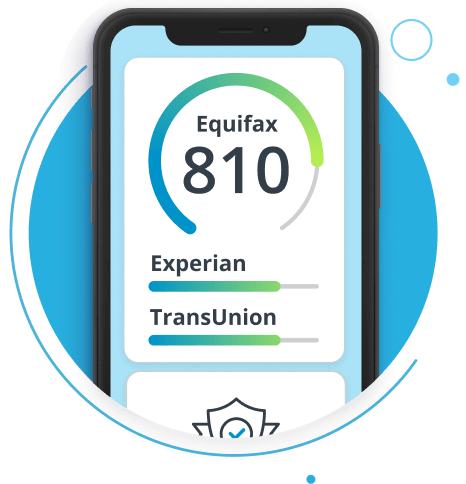Strategies for Paying Off Debt


Highlights:
- There's no single debt solution that fits every borrower's finances. The repayment method that's best for you will depend on your financial situation.
- The avalanche method focuses your repayment efforts on high-interest debt. The snowball method targets your smallest debts first. Debt consolidation is another option to consider.
- It's important to keep up with your other financial goals while paying off debt.
Debt can be intimidating, but it's important to face what you owe head-on. The best way to pay off debt depends on how much you owe compared to how much you earn. The right strategy can help you tackle debt and build towards your financial goals. There are three common strategies for paying off debt. Learn more about how to pay off your debt while managing your other financial goals.
Common strategies for paying off debt
There's no one-size-fits-all process for paying off debt. These common strategies can help you get started.
- The debt avalanche method. The avalanche method focuses your repayment efforts on high-interest debt. You'll rank your debts from the highest interest rate to the lowest. Pay as much as you can on the debt with the highest interest rate. Then, you'll pay the minimum balance each month for the rest of your debts. Once you pay off your highest-interest debt, move onto the next-highest interest rate. Repeat the process until all your debts have been repaid in full.
- The debt snowball method. With this strategy, you'll rank what you owe from the smallest balance to the largest. Pay as much as you can on the debt with the smallest balance. Then, pay the minimum balance each month for the rest of your debts. Once your smallest debt has been repaid, move on to the next smallest debt and repeat the process. The snowball method doesn't aim to reduce interest or save money over time. Instead, by paying off accounts, it can help to keep you motivated.
- The consolidation method. There are many ways to consolidate debt, including a balance transfer credit card. This combines different credit card balances into one. You could also consider a debt consolidation loan. This allows you to pay off your old debts with a lump sum that you'll pay back over time. If you're a homeowner, you might also consolidate with a loan backed by your home equity. The goal of consolidation is to simplify your debts into a single payment. This can make it much easier to keep track of what you owe, reducing your risk of missing payments. Consolidation may also save you money if your new credit card or loan has a lower interest rate.
How to pick a debt repayment plan that works for you
There's no single repayment strategy that fits every borrower's finances. To choose your best option, you'll have to consider a few things. Look into the types and amount of debt you have as well as your interest rates and terms. Pay attention to your monthly budget and your long-term credit and financial goals.
Are you juggling high-interest debt and looking to save money while paying off debt? If so, you might consider the avalanche method. But the opportunity to save money won't mean much if you can't stay focused on your goal of repayment. If you're more motivated to see debts disappear as soon as possible, you might opt for the snowball method. Whatever strategy you choose, it's important to make repaying your debt a priority.
How to balance your finances while paying off debt
While paying off your debts, you'll also need to keep up with your ongoing financial goals.
- Create a monthly budget. A monthly budget can help you manage your debt alongside your day-to-day spending. To start, list your expenses and identify each item as mandatory or discretionary. Then, you divide your monthly income according to a budgeting strategy of your choice. The 50/30/20 method is a helpful starting point. 50% of your income goes to your necessary expenses (including your debt payments). 30% goes towards discretionary/nonessestial expenses and 20% goes towards savings.
- Make debt payments beyond the minimum. Making more than your required minimum payment can help you pay off debts sooner. Plus you can save money in interest charges. Earmark unanticipated funds, such as your tax return or a bonus, for debt payments. You can also try to reduce your discretionary spending.
- Establish an emergency savings fund. It's important to create an emergency savings fund for unexpected expenses. With no emergency savings, you may have to rely on a high-interest credit card or a personal loan to cover the costs. To avoid compounding your debt, set aside a few months' worth of expenses in an emergency fund. For best results, consider using a high-interest savings account.
Equifax® can help you keep an eye on your credit reports and scores
As you pay off your debt, you should review your credit reports and scores. By looking at your credit reports, you can see your efforts making a difference. Plus, checking your credit reports can also help you detect any inaccurate or incomplete information.
Equifax Complete™ Premier can help you track your credit and uncover potential fraud. Create a myEquifax™ account to get free Equifax credit reports. From your myEquifax account, you can also click "get my free credit score" to enroll in Equifax Core Credit™ and get a free monthly Equifax credit report and a free monthly VantageScore® credit score based on Equifax data. A VantageScore is one of many types of credit scores. You can also go to annualcreditreport.com to get a free copy of your credit reports from each of the three nationwide credit reporting agencies - Equifax, Experian® and TransUnion®.
Debt can seem overwhelming. With a strong debt repayment strategy, you can get a handle of your debt and build for the future.

Don't wait another day to build your credit confidence. With Equifax Complete™ Premier, know where you stand with access to your 3-bureau credit report.



